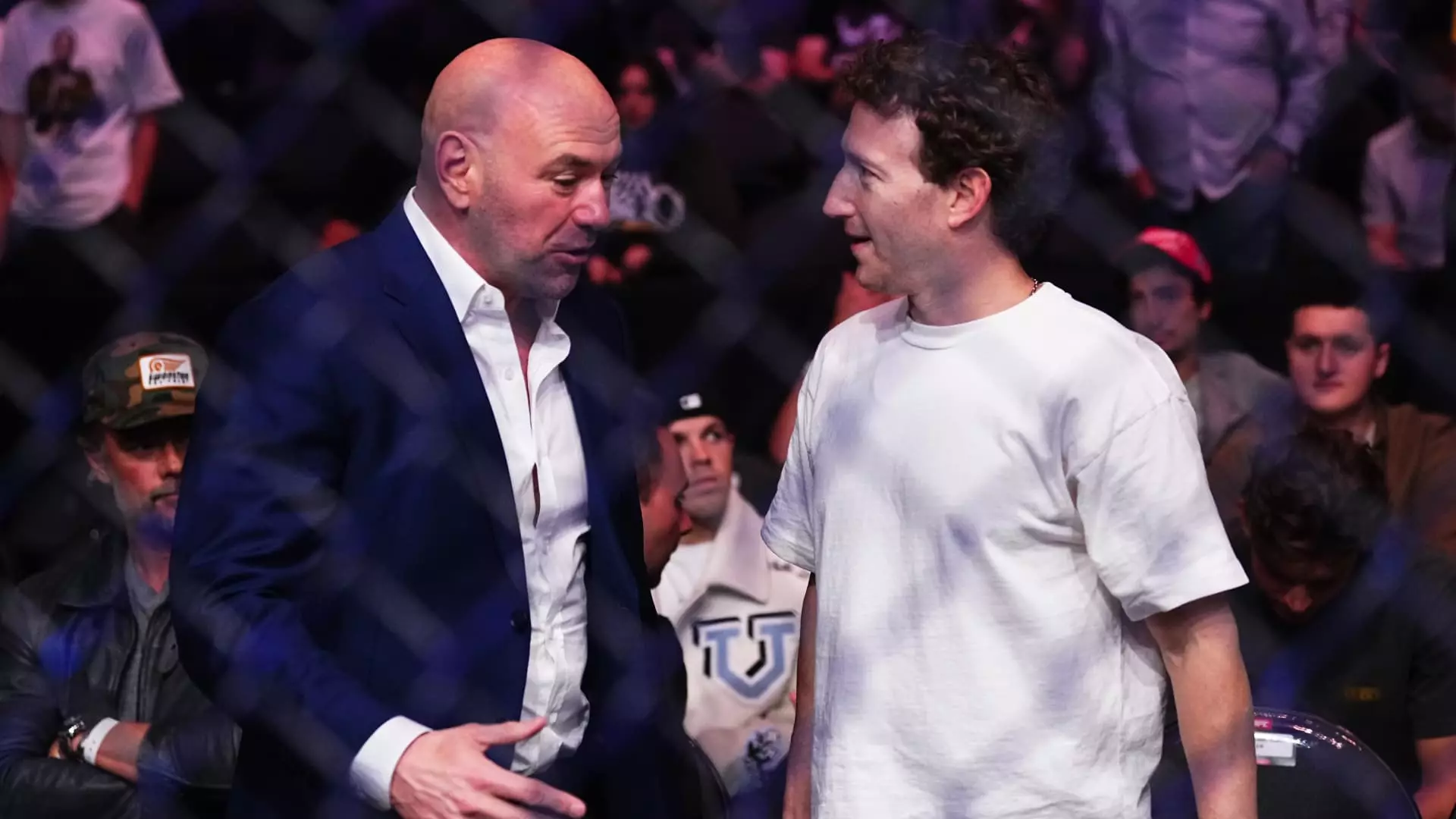The striking alliance between TKO Group’s UFC and Meta is undeniably a groundbreaking development that is set to transform the world of mixed martial arts (MMA). Mark Zuckerberg’s tech titan is formally stepping into the Octagon as the “official fan technology partner,” promising innovative engagements that could significantly enhance the viewer experience. Yet, amidst the excitement, one can’t help but wonder if this multifaceted relationship signals a more alarming trend—the increasing commercialization of sports, where the bottom line may ultimately dictate the fight itself rather than the athletes who earn their fame through hard work and prowess.
A Partnership Rooted in Technology and Perception
UFC President Dana White’s effusive remarks about the partnership signify a bold new horizon for the organization. By integrating with the comprehensive Meta ecosystem—encompassing platforms like Facebook, Instagram, WhatsApp, and even Meta AI—the UFC is not merely tapping into technology; it is embedding itself into the everyday lives of fans. This enhancement of accessibility is pivotal for any sport trying to maintain a foothold in an overcrowded entertainment landscape. However, the potential for a dilution of authenticity also looms large.
Zuckerberg’s personal interest in MMA and alignment with UFC’s culture create a compelling narrative, making the partnership feel almost personal rather than purely corporate. His statements assert a vision for the sport that appears aggressive and bold, yet one must ask: will this blend of corporate intrigue and personal passion truly serve the sport’s integrity and the fighters involved?
The Cost of Commercialization
What remains disheartening is the reality that such partnerships often prioritize financial gains over the sport’s essence. Grant Norris-Jones, TKO’s head of global partnerships, hinted at Meta’s substantial investments supporting UFC’s initiatives. While it’s easy to cheer for technological innovation, one cannot overlook the wider implications. The more significant the financial stakes become, the more football fans may face a diluted experience overshadowed by corporate interests.
Moreover, the implications of Zuckerberg’s love for combat sports, as highlighted in various statements, introduce a troubling irony. Here is a CEO who discusses the value of “masculine energy” in both corporate culture and combat sports, yet exists within a technological realm that often falls under fire for promoting negativity, division, or content that distorts reality. Zelensky-style bravado might resonate with some, but it will inevitably impact how the fanbase perceives its connection with the sport.
New Media, New Challenges
The history of ESPN and UFC’s media partnership paints a picture of evolution, with the current exclusive rights negotiation ending soon. However, as ESPN opts not to renew its deal, the question arises: what does this mean for the future of sports broadcasting? The lucrative deal with Meta might just pave the way for a paradigm shift in how mixed martial arts is consumed and marketed. Boundaries between social media and live sports are visibly blurring, pushing UFC into the realm of instantaneous digital content.
While there is merit in democratizing access to fight nights via platforms like Threads, caution is warranted. Exclusivity should not erode the communal and visceral experience of live sports—one that has previously fostered a sense of belonging among fans. The UFC may risk alienating its core audience, which thrives on gritty, raw competition rather than curated online content that might soften the blow of losses or soften fighters’ images.
Fighters at the Center of Change
As exciting as this new partnership appears for fans, what about the fighters themselves? They are, after all, the heart of this equation. The emphasis on tech-savvy solutions and corporate partnerships often means fighters may take a backseat to branding tactical maneuvers. Ensuring that these athletes’ voices and well-being are prioritized amidst this mounting corporate tide is essential, but as history shows, businesses typically pursue their interests first.
Decades of exhilarating fights may be sacrificed in an attempt to fit into a pre-packaged mold appealing to the broader audience. Amidst this swirl of digital advancements and commercial investment, the remarkable grit and determination of the fighters may be overshadowed, leading potentially to a loss of the authenticity that originally endeared so many to the sport.
The TKO Group and Meta partnership presents a thrilling yet potentially perilous new horizon for UFC. As we watch this technology and personality-driven conglomerate unfold, the need for caution, vigilance, and a fighter-centric approach has never been more clear.

